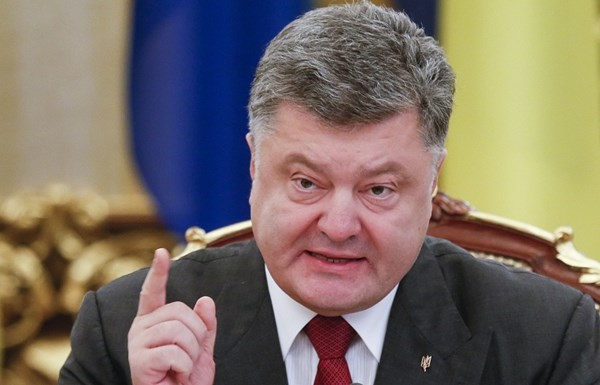Poroshenko does not rule out imposing martial law due to growing tensions in Crimea
The armed clashes in the Donbas region and the growing tension in the Crimea may lead to this type of decision by the Ukrainian President.
The President of Ukraine, Petro Poroshenko, said on Thursday, August 18, 2016 that he does not exclude the introduction of martial law and a new wave of military mobilization if the conflict with the Russian-supported separatists worsens.
Poroshenko appeared at a time when increased tensions with Russia regarding the Crimea intensified fears that a fragile ceasefire, reached in February 2015 in the capital of Belarus could fall apart after the most deadly month of the armed conflict this year.
"If the situation escalates in the eastern Ukraine and the Crimea, we cannot exclude the possibility that we will be forced to impose martial law and to declare mobilization," Poroshenko said in a televised address from the Lviv region in western Ukraine. Poroshenko did not explain what the imposition of martial law could mean and if he is talking about imposing martial law throughout the country or only in some parts.
Ukrainian legislation allows for martial law to be declared by decree of the President and approval by Parliament. This may include restrictions on the movement of people, the prohibition of political parties, some institutions and mass rallies. Starting in 2014, Ukrainian leadership has announced several waves of mobilization to strengthen the country's armed forces, leading the fight in eastern Ukraine.
Earlier on Thursday, August 18, 2016, the Ukrainian military reported that three soldiers were killed and six soldiers were injured during fighting over the past 24 hours.
In comments to a French News Agency, Presidential spokesman on conflict issues Aleksander Motuzianyk said that the separatists "released more than 500 mortar and 300 artillery shells," directed at Ukrainian positions.
Meanwhile, the separatist authorities have accused the Ukrainian military in carrying out attacks, including the use of heavy weapons banned under the Minsk Agreements according to the separatist News Agency DAN.
The OSCE, which is responsible for monitoring the implementation of the 18-month ceasefire, announced "a large number" of violations in the eastern districts this week. This includes shelling and small arms fire as well as the movement of heavy weapons.
